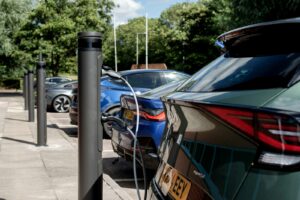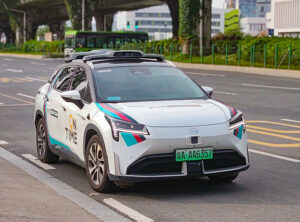China must step-up the recycling and repurposing of electric vehicle (EV) batteries, says Greenpeace.
The deployment of electric vehicles is essential to reduce air pollution and help to decarbonise our transport fleet. However, the manufacturing of batteries is energy and carbon-intensive and puts the supply of key raw materials like lithium and cobalt under severe strain.
According to Greenpeace, 12.85 million tonnes of EV lithium-ion batteries will be used worldwide between 2021 – 2030, meaning that more than 10 million tonnes of lithium, cobalt, nickel and magnesium will be mined.
Based on these findings, the environmental group is calling on China, the biggest manufacturer of EV batteries to accelerate its ability to recycle and reuse these batteries.
According to Greenpeace, the repurposed batteries could be used in shared e-bikes or as a power backup for 5G stations and recycling them could save 63 million tonnes of carbon emissions from new battery recycling.
In related news, late last month Beatrice Browning, PhD researcher at the Faraday Institution wrote for Air Quality News about why we need to recycle lithium-ion batteries from electric vehicles (EVs).
In order to reduce environmental penalties from international exportation of these materials, it is essential that we understand how to recycle and recover these materials properly, writes Beatrice.
With the help of lawmakers and manufacturers working in conjunction with one another to enable optimisation of recycling infrastructure, we should be optimistic that a circular economy for lithium-ion batteries from is forming in the UK.
Photo Credit – Pixabay

















Leave a Reply